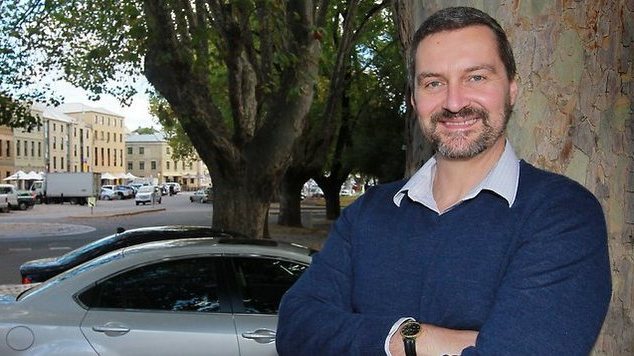Tasmanians who were convicted under the state’s former laws against homosexuality or cross-dressing will be eligible for financial redress to a maximum of $75,000.
The Tasmanian Upper House on Wednesday unanimously agreed to Government legislation allowing redress that is the first of its kind in the nation.
Equality Tasmania spokesperson, Rodney Croome, said the compensation scheme was required given the trauma many people experienced over a long period of time.

“Victims of our former laws faced forced outing, public humiliation, loss of employment, exclusion from family, gaol time, cruel psychiatric ‘treatment’, exile interstate or took their own lives.”
“This reform will provide victims with financial redress for their trauma as well as knowledge the state that once persecuted them now cares about what happened to them.”
Tasmania was the last state to decriminalise homosexuality when it changed its laws in 1997 and the only state to criminalise cross-dressing, a law which remained until 2001. Since then has adopted the nation’s most progressive LGBTIQA human rights laws.
“Financial redress is evidence of how profoundly Tasmania has changed for the better in the last quarter century and shows we are not going back.” Croome said.
Those charged will receive $15,000, those convicted $45,000 and those punished $75,000. All payments will be automatic upon the successful application for a historic criminal record to be expunged.
Rodney Croome said the Tasmanian approach was the first in Australia.
“This is not just a new law, but a new type of law. There is no other LGBTIQA redress law in Australia.”
“We call on other states and territories to follow Tasmania’s lead on this important reform.”
“We also call for redress to be offered for other examples of systemic discrimination against LGBTIQA people, including the discharge of military service personal in decades past simply because they were gay, lesbian, bisexual or transgender.”
The Government will now consider payments to families of deceased victims and the possibility of individualised redress assessment.
Mr Croome said it is important financial redress passed as quickly as possible given the advanced age of the men who will benefit from redress.
“It is also vital the State Government advertise the availability of financial redress as widely as possible so those who can benefit from it are aware of it.”
“We will work closely with the Government to ensure this occurs.”
The final stage of the debate, the Third Reading, is expected on Thursday morning, it is considered a technicality.
Rodney Croome said credit for the success of this pioneering undertaking goes to a number of people: Taya Ketelaar-Jones and Melanie Bartlett who recommended it in their independent review of existing expungement legislation five years ago; the Greens for putting this recommendation into legislative form and introducing it, especially Rosalie Woodruff and Thomas Whitton; Ruth Forrest and the Gender and Equality Committee for recommending what the amounts should be; Prof Paula Gerber for her important contribution to that Committee’s deliberations; the State Liberal Government, Department of Justice and Attorney-General, Guy Barnett, for ensuring all this work made it into the final legislation; and the tireless advocacy for reform from Shadow Attorney-General, Ella Haddad, and the Labor Party, and independents across the political spectrum.
“Pioneering law reform is never the work of one or two people alone. As this reform shows, the best laws spring from many expert and dedicated minds working together”, Croome said.

Professor Paula Gerber is encouraging other states to follow Tasmania’s lead
Professor Gerber from Monash University was key in helping the Tasmanian Government to settle on the appropriate level of redress and develop this legislation, and was also instrumental in driving the first Australian scheme to expunge convictions in Victoria in 2014. She is now urging other states and territories to follow Tasmania’s lead.
“Tasmania has gone from being the last state in Australia to decriminalise homosexuality, to being the first state to offer compensation to those who were charged or convicted under those heinous laws,” Professor Gerber said on Thursday.
“Just 28 years ago, men could be imprisoned in Tasmania for up to 21 years for consensual same-sex sexual conduct, representing the most severe penalty of its kind in the Western world.
“The state was also the only one in Australia to criminalise cross-dressing, a measure which persisted until 2001, and was predominantly used to target transgender women.
“In fact, it took a landmark case at the United Nations which set a global precedent that criminalising consensual gay sex fundamentally breaches human rights, before Tasmania finally decriminalised.”
“It’s estimated there are around 100 men in Tasmania who are still living with the legacy of having been charged with something that never should have been criminalised.
“The compensation scheme will never take away the dehumanising discrimination and deep harm they experienced, but it goes some way to righting the wrongs and acknowledging the state’s regret at the mistakes it has made.
“The attention now turns to all other Australian states and territories, who must follow Tasmania’s lead and get to work on similar schemes, which are the necessary next step in the process of healing for older LGBTIQA+ people who bear the scars of these historic wrongs.
“Our leaders have the opportunity to rectify Australia’s shameful history of discriminating against the LGBTIQA+ community, and a renewed commitment to justice for all will ensure a brighter future of acceptance and inclusion for all Australians.”
Western Australia introduced a scheme to expunge historical convictions in 2019. In 2023 OUTinPerth revealed that the scheme had a very low uptake in applications with only two requests being submitted and only one submission being approved.




